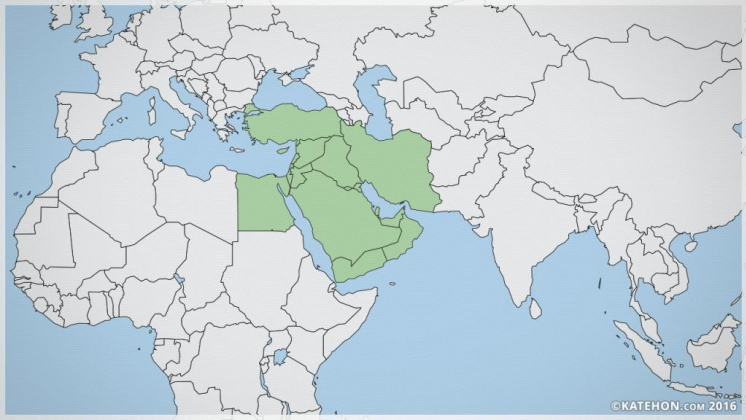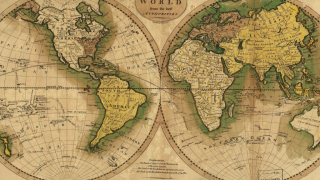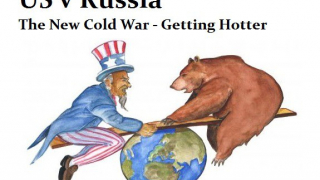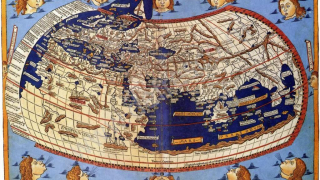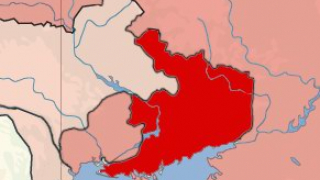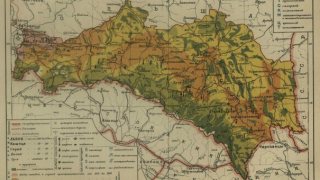2017 Forecast: The Mideast
Summary
The Mideast is undergoing a fundamental geopolitical reorganization as Russia spearheads a Tripartite Concert of Great Powers between itself, Iran, and Turkey aimed at ending the War on Syria, though this game-changing partnership could be offset by conflicting objectives between the two Mideast powers in Iraq, which the US will try to exploit to all feasible ends. Furthermore, Turkey and Saudi Arabia – once the US’ unipolar pillars of regional order – are each on the brink of prolonged domestic destabilization, albeit for polar opposite reasons, which could lead to previously unthinkable conflicts breaking out inside these erstwhile stable states.
The Tripartite
Long dismissed by alternative media “experts” as a “geopolitical fantasy” and at worst an ill-intentioned fabrication by “Turkish apologists”, it’s now indisputable that a trilateral arrangement between Russia, Iran, and Turkey is indeed in working effect following the historic Moscow Summit of 20 December. The author consistently forecast this in a series of articles which the reader is heavily encouraged to read through or skim if they’re interested in the finer details:
* 30 June: Russia, Turkey, And Kurdish Issue
* 16 July: Post-Coup Turkey Will Be Distinctly Eurasian
* 18 July: Why The Failed Turkish Coup Attempt Wasn't A "False Flag" Power Grab By Erdogan
* 20 July: Regional War Looms As “Kurdistan” Crosses The Euphrates
* 24 August: Turkey Crosses Into Syria: Unipolar Conspiracy Or Multipolar Coordination?
* 26 August: Turkey In Syria, The FSA, And The Upcoming Quarrel Over Syria’s Constitution
* 21 October: Reassessing The Reasons For The Failed Turkish Coup Attempt
* 26 October: Turkey’s Anti-Daesh Operation: From Bad To Worst-Case Scenario?
* 30 November: No, Erdogan Didn’t “Trick” Putin And The Ayatollah
* 19 December: Moscow’s Syrian-Afghan Summits Are Geostrategic Masterstrokes
Additionally, the author also wrote a detailed book-length strategic analysis in early September about the geopolitical prospects of the Russian-Iranian-Turkish Tripartite in key regions of the world:
* “Syraq”
* The GCC
This geopolitical partnership at the heartland of the Afro-Eurasian supercontinent and the entire Eastern Hemisphere has the possibility of completely upending the unipolar New World Order and paving the way for the creation of its emerging multipolar replacement, which is why the US will stop at nothing to turn its members against one another in a classic divide-and-rule gambit. President Putin alluded to this much when he said that the terrorist assassination of the Russian Ambassador to Turkey was a provocation aimed at derailing the historic 20 December Tripartite Summit in Moscow.
Syrian Centralization And Iraqi Fragmentation
The Moscow Declaration was the fruit of the Tripartite’s meeting in late December and it paves the way for ending the War on Syria. Of particular geostrategic relevance is that it specifically says that all three Great Powers will work together in fighting terrorism and “respect the sovereignty, independence, and territorial integrity of Syria”. Russian Foreign Minister Lavrov even went as far as to herald the Tripartite as “the most effective way to settle the Syrian crisis”, pointing to how the Moscow Declaration is promisingly able to achieve much more than any prior agreement which involved the US and its allies. The reader should pay attention to the words about Syria’s territorial integrity, since this suggests that the Tripartite is opposed to the “federalization” (internal partition) plot of the country being advanced by the PYD-YPG Kurds and their American-‘Israeli’ backers. The author wrote a three-part series about this at the beginning of 2016 which can humbly be said in hindsight to have proven remarkably accurate at forecasting the behavior of these unipolar proxies in northern Syria, so the reader should reference it if they’re interested in learning the guiding motivations behind the separatist Kurds. It was the threat that they pose to Syria, Turkey, and even Iran which served as the catalyst to the Tripartite’s formation, so it’s reasonable why all three Great Powers would be so firmly opposed to the unipolar-supported internal partition of the Arab Republic.
As for Iraq, that’s an entirely different matter, and Turkey and Iran support different on-the-ground proxies fighting for separate political ends in the country’s liberation campaign against Daesh. Although the Turkish-backed Kurdish Regional Government (KRG) and Iranian-supported Shiite militias are nominally united in the Battle for Mosul, they’re in effect engaged in this conflict for different purposes, with the Kurds envisioning post-conflict independence from Iraq while the Shiites have no such political ambitions. To build off of that, the prospective independence of the KRG will immediately trigger a civil conflict inside of Iraq, as the Kurds currently control territory outside of their legally mandated statelet such as the oil-rich city of Kirkuk. There is a “solution”, however, and it’s the Identity Federalism of each of Iraq’s three constituent peoples (Shiites, Sunnis, and Kurds) into quasi-independent polities largely disengaged from both one another and the federal center of Baghdad, though this would of course have to entail a consensual agreement about a meticulous array of details such as those pertaining to revenue, the military (both a national one and militias for each statelet), and other matters in order to avoid a civil war. It’s here where Turkey and Iran might come to an agreement as neither wants a failed state to persist along their shared border region, though the US and Saudi Arabia might see this to their cynical strategic advantage and press forward for extreme Sunni political demands in order to provoke a chain reaction of conflict.
Turkish Tumult And Saudi Destabilization
One of the most ironic results of the profound changes that have been taking place in the Mideast over the past year is that the former pillars of the US’ unipolar-led regional order are now the two most conflict-prone states in the Mideast, just like the author first predicted in his October 2015 analysis about “’The New Middle East’: Russian Style”. Turkey’s saga from American lapdog to multipolar partner is explained in the previously cited articles from the first section, though it generally comes down to Erdogan realizing that it’s in his country’s best strategic and existential interests to combat the US’ efforts to forge a second geopolitical ‘Israel’ in the heart of the Mideast (“Kurdistan”) and to embrace the New Silk Road future that Moscow and Tehran have already signed up for. In response, the US clumsily initiated the failed coup attempt against him, and despite having survived it, the domestic division within the country is now unprecedented as leftists, Kurds, and other sorts of opposition movements are now steadfastly against the government (though careful not to speak too loudly about it out of fear of being ‘cleansed’/’purged’ from public life). Additionally, Erdogan’s cultivation of a broad Muslim Brotherhood-influenced base all across the country concurrent with his support for Daesh and other Salafist terrorist groups in Syria seems ready to combine into a nightmare scenario of blowback domestic terrorism which could seriously jeopardize the country’s stability and pose a major obstacle to the Tripartite.
Concerning Saudi Arabia, the American-backed Wahhabi Kingdom was betrayed by its Washington patron during the course of the Energy War and is now bleeding billions of dollars every month since it’s unable to properly fill its coffers. It also doesn’t help that the failed War on Yemen is taking a heavy financial toll on Riyadh as well, and these two pressing economic-financial factors are setting Saudi Arabia up for a period of uncertainty in the coming years. The country’s mostly spoiled middle-class inhabitants might have to experience unprecedented austerity which cuts into the standard of living that they had previously taken for granted, while the same budget cuts will disproportionately affect the already impoverished and discriminated Shiite minority of the oil-wealthy Eastern Province. Observers also shouldn’t lose sight of the fact that there have been regular whispers about palace intrigue among the thousands-strong royal family in Riyadh, and that the reports speculating about some of the ruling family’s dissatisfaction with the 31-year-old upstart Minister of Defense and Deputy Crown Prince Mohammad Bin Salman are probably credible. This might not necessarily signify that a palace coup is in the cards, but at the very least that the royal family is becoming more divided and that its ruling members are holding onto power in an even more dictatorial fashion than ever before. Altogether, none of these indicators are to Saudi Arabia’s advantage, and the Kingdom convincingly seems to be approaching a period of domestic crisis, though of an uncertain length and intensity.

